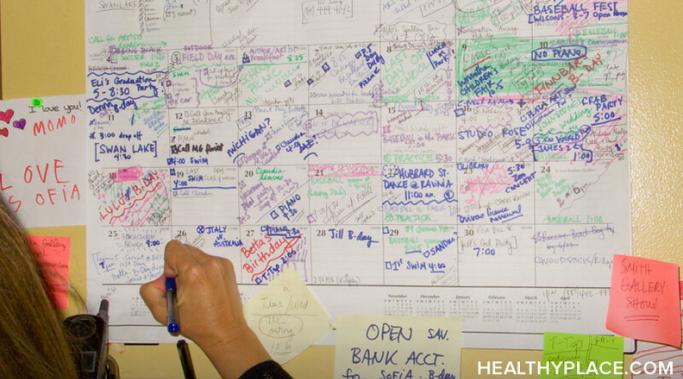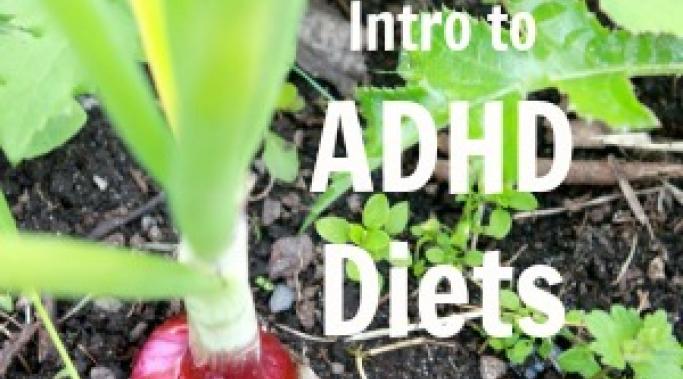I love getting new books, but attention-deficit/hyperactivity disorder (ADHD) makes reading difficult. Discovering what is between book covers is a wonderful experience. However, finishing those books is a different issue. As is often the case for people with ADHD, I have difficulties with follow-through on things, and that includes reading; other people with ADHD find reading difficult for other reasons.
Symptoms of ADHD
I have wasted so much time trying to orient myself while traveling thanks to my attention-deficit/hyperactivity disorder (ADHD) and my lack of sense of direction. My iPhone battery is a precious resource when I have to constantly check its GPS. I try to inform others that I have a terrible sense of direction, but many still seem surprised at my incompetence (ADHD: Better Late Than Never?). The connection between ADHD and a sense of direction is more complex than I realized.
To be fair, the Stanford marshmallow study is itself not stupid. It is the way that it is reported that often leaves me frustrated. In the 1960s and ’70s, Stanford psychologists conducted a series of studies in which researchers placed a marshmallow (or another treat) in front of a child. They told him that he would receive a second treat if he could wait for 15 minutes while the researchers left the room. Follow-up "marshmallow" studies revealed that the children who could wait longer tended to be more “successful” than those who did not. Unfortunately, this is the kind of narrative people with attention-deficit/hyperactivity disorder (ADHD) know too well, and it is the kind of test they often "fail." ADHD and self-control is a big deal.
People with attention-deficit/hyperactivity disorder (ADHD) experience a sense of urgency. In fact, people with ADHD have a complicated relationship with time in general. ADHD-ers often suffer from "time blindness” that makes time management difficult because we often can't accurately measure time. It can make both everything and nothing seem urgent. Today, I would like to address this “now or never” aspect of adult ADHD and urgency.
I have a disability called adult attention-deficit/hyperactivity disorder (ADHD). ADHD causes many symptom-related problems that I must learn to manage. For instance, if you are blind, you prepare an environment and create habits that make the disability more manageable. I am approaching the disability of ADHD by transforming my environment and creating habits that reduce the problems caused by my ADHD symptoms.
A common misconception is that apart from medication, there is little someone diagnosed with adult attention deficit/hyperactivity disorder (ADHD) can do to maintain what passes as order in their life. While it certainly feels like that from time to time, it is simply not the case. There are some things an adult with ADHD can do to stack the odds in his or her favor.
It seems like everyone you know is on a diet, right? Most people don't succeed, sadly. If they do, they gain it back (plus some) later on. It's hard to stick to losing weight and a diet plan. For those of us with adult attention-deficit/hyperactivity disorder (ADHD) it can be even more difficult. Impulisvity, medication side-effects and all the traps that "ordinary people" fall into are all waiting to trip us up.
I have been working on my executive functioning (EF) skills during my week long break from school. How have I, chock full of adult attention-deficit/hyperactivity disorder (ADHD), accomplished this? Well, by practising the steps of EF: planning, organizing and only then completing a task. I began, and completed, one project over break and am currently in the middle of my second (which I sadly won't finish for quite some time).
Many parents with attention-deficit/hyperactivity disorder (ADHD) remember, as a child, taking an ADHD medication vacation during the summer. Well, summer is around the corner and maybe you're wondering what to do about your son or daughter's ADHD medications. Bob says, "my child really needs them for school, and the medication has calmed him down a lot, but some people have told me they take their kids off ADHD medication in the summer. I‘m not sure what to do!” (See an Adult ADHD Medication Vacations article here.)
Yesterday, I attended a really cool event run by the Maryland Branch of the American Physical Therapy Association (APTA) all about sports physical therapy and orthopedic surgery. A few times when I stood up my brain felt pretty wobbly. I was watching Doc Martin in the evening and noticed a bit of a tickle in my throat. Now, I have a full fledged cold and it definitely has an interaction with my typical adult attention-deficit/hyperactivity (ADHD) symptoms.









